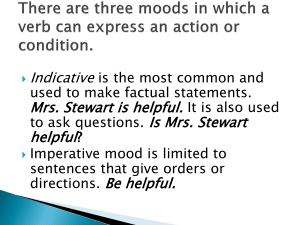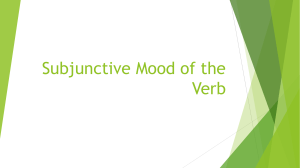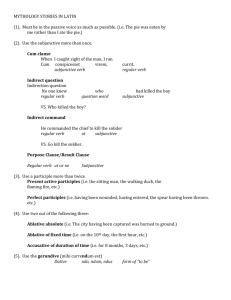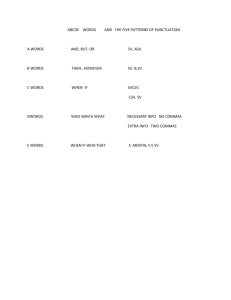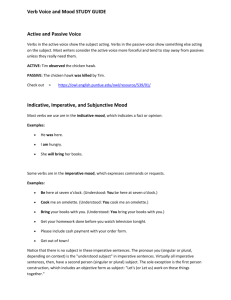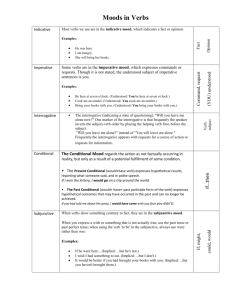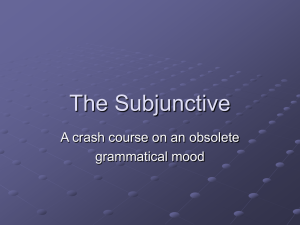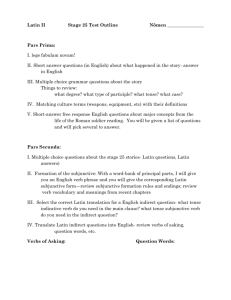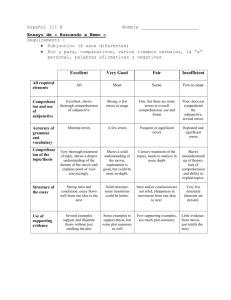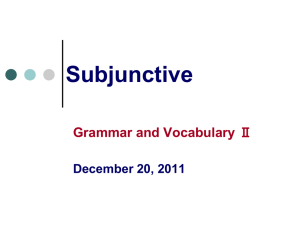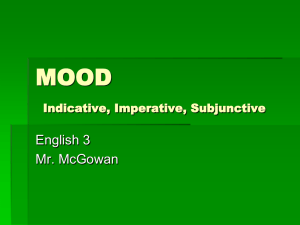Subjunctive summary fall 14 - engl-mitchell2
advertisement
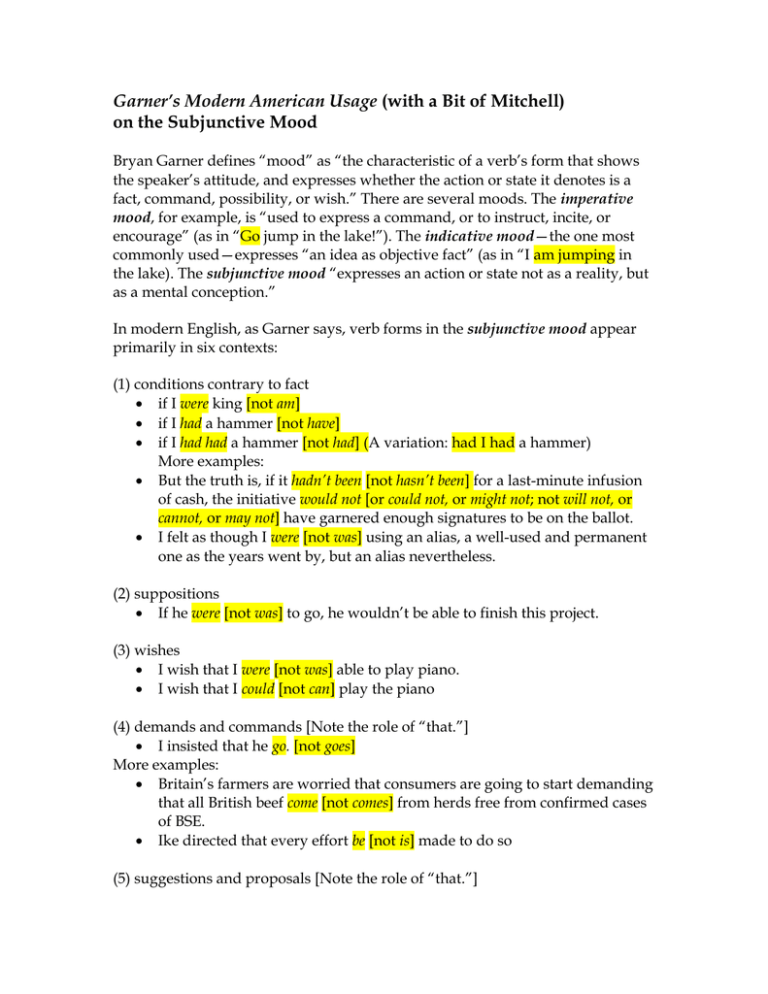
Garner’s Modern American Usage (with a Bit of Mitchell) on the Subjunctive Mood Bryan Garner defines “mood” as “the characteristic of a verb’s form that shows the speaker’s attitude, and expresses whether the action or state it denotes is a fact, command, possibility, or wish.” There are several moods. The imperative mood, for example, is “used to express a command, or to instruct, incite, or encourage” (as in “Go jump in the lake!”). The indicative mood—the one most commonly used—expresses “an idea as objective fact” (as in “I am jumping in the lake). The subjunctive mood “expresses an action or state not as a reality, but as a mental conception.” In modern English, as Garner says, verb forms in the subjunctive mood appear primarily in six contexts: (1) conditions contrary to fact if I were king [not am] if I had a hammer [not have] if I had had a hammer [not had] (A variation: had I had a hammer) More examples: But the truth is, if it hadn’t been [not hasn’t been] for a last-minute infusion of cash, the initiative would not [or could not, or might not; not will not, or cannot, or may not] have garnered enough signatures to be on the ballot. I felt as though I were [not was] using an alias, a well-used and permanent one as the years went by, but an alias nevertheless. (2) suppositions If he were [not was] to go, he wouldn’t be able to finish this project. (3) wishes I wish that I were [not was] able to play piano. I wish that I could [not can] play the piano (4) demands and commands [Note the role of “that.”] I insisted that he go. [not goes] More examples: Britain’s farmers are worried that consumers are going to start demanding that all British beef come [not comes] from herds free from confirmed cases of BSE. Ike directed that every effort be [not is] made to do so (5) suggestions and proposals [Note the role of “that.”] I suggest that she think [not thinks] about it a little longer More examples: He suggests that his informant check [not checks] with Israeli intelligence. And France proposes that the EC commit [not commits] itself to a single currency by 1999. (6) statements of necessity [Note the role of “that.”] It’s necessary that they be there. [not are] More examples: His entrance into the military made it necessary that he use [not uses] the birth-certificate version of his name. It will be necessary that he or she have [not has] a solid understanding of school finances. Most of these subjunctive usages involve actions or states of being that did not happen or exist but might have happened or existed, did not happen or exist until a demand of some kind was made, or are not happening or existing but might happen or exist in the future. The subjunctive exists in our language (and others) because there are times when people need to discuss actions or states of being that were once, or are now, only imagined. Note: Many subjunctive verb forms in English are the same as the indicative verb forms, but some are not. You can find a useful table showing subjunctive forms, as well as detailed descriptions of subjunctive usages, at http://www.wordpower.ws/grammar/gramch09.html
